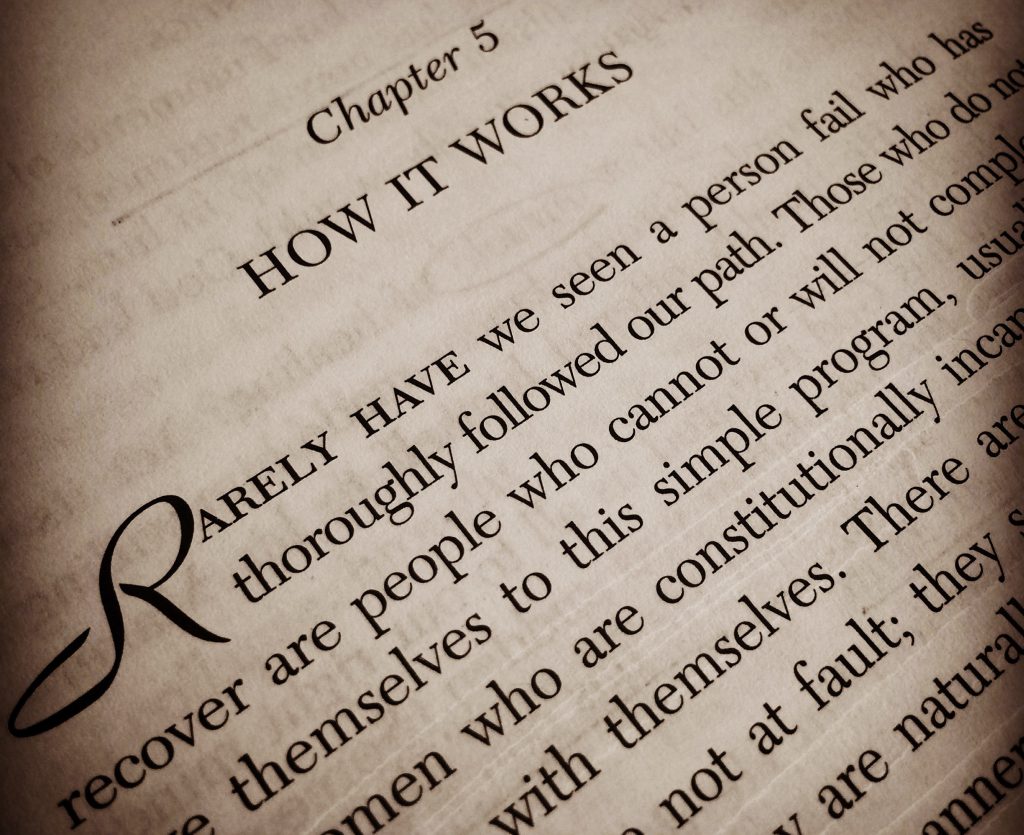“Rarely have we seen a person fail who has thoroughly followed our path.”[1]
I hear these words read aloud nearly every day, to the point that it sometimes hums through my ears unnoticed like the sound of the wind. When I first got sober and was realizing how important the fellowship of other recovering drunks was, these words hit me hard. It provided a one-two punch of both hope and terror, promising a new life from the darkness that I had been living in while demanding that I shed my old ways and approach recovery with a rigorous amount of honesty and humility. These were two virtues that I wasn’t all that experienced in (nor even thought capable of practicing), and I relied on the patient love of God and the strength of others to find them within me.
It turns out that the same path that got me sober is necessary to keep me sober. I’ve learned that from witnessing the shared testimony of others—those who have relapsed after various lengths of sobriety and those who have remained sober through the highs and lows of recovery. The most common phrase I hear from those who have “gone out”, or relapsed for a length of time, is, “I stopped going to meetings. I thought I could do it on my own.” These words have yet to lose their power, piercing my heart every time I hear them. However, it’s a message that I do not hear if I’m not participating in the fellowship that helped get me sober. It’s probably the same message that would be coming from my mouth if I fail to thoroughly follow the path paved by millions who have gone before me.
The program of recovery that I know is a “we” program. In the wording of the twelve steps, some variation of “us”, “we”, or “our” is used 17 times. There are 9 references to “us”, “we”, or “our” in the short reciting of the Lord’s Prayer, beginning with “Our Father”, not “My Father”. Whether you are in recovery, Catholic, human, or all three, there is strength to be found in the community around you, assuming that it strives for virtue.
I understand that this runs counter to a lot of the notions that society deems esteemable. Being “self-made” and doing it on one’s own is granted honor over seeking help and relying on others. On the surface, this may seem true. However, what is the reward for doing it on one’s own when they cannot share the experience with others? Doesn’t that simply leave one seeking more and more to bring the fulfillment that they expect from individual accomplishments?
My experience around this is that it does. The moments when I expect to find some kind of peace from my own achievements are typically the moments when I quickly want more—more honor, more glory, more power, more pleasure. These are moments that, if left unchecked, can put me in a place of just as much vulnerability as moments of disappointment and loss. It is when I can share these moments with others that I can find serenity. Only with the help of others do I gain the unnatural realization that the gifts I get to experience from my recovery are not a testament to my own strengths, but to the strength of God who has blessed me with a number of people who are constantly showing me the face of Jesus.
When I get away from “us” and get too caught up in “me”, I quickly find areas of my life that just aren’t enough. In these instances, I forget that sobriety has been incredibly gracious to me and that I am playing with stacks upon stacks of house money. When I get away from the pack and seek my own path, the voices that say, “You’ve been sober for long enough, I’m sure just one drink wouldn’t hurt,” become more persuasive. Those voices are sometimes subtle, and reveal themselves in ways that can go unnoticed. It is in sharing myself—and I’m not talking about publicly sharing myself through writing blog posts like this, but through personal interactions with the company of others—that I gain perspective on Truth and the source of my strength.
My strength is found in the people that once told me that I don’t ever have to take a drink again. It’s found in the people that looked me in the eyes and proclaimed that God’s mercy is greater than my sins and those of the entire world.
To those who have blazed the trail and committed themselves to helping others while spreading the Good News with the world, my soul is indebted to you. May all that we do glorify God who has given us so many gifts and opportunities to experience life with each other.
[1] From Alcoholics Anonymous: The Story of How Thousands of Men and Women Have Recovered, the so-called “AA Big Book,” 58. (AA World Services, Inc., New York, NY, 2001).

